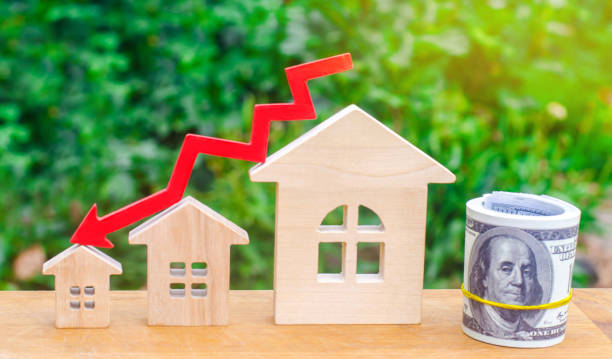Two of the most popular investment options are stocks and real estate. With increasing awareness about the stock market, more people are investing in it. You’ve probably heard people talk about the stock exchange and its importance. On the other hand, real estate has been a reliable investment tool for many years. It has been a trusted investment option for many who have made good returns on their real estate investments. Continue reading if you’re new to investing and are still determining which is safer or more profitable.
Understanding the Pros and Cons of Investing in Real Estate:
Pros:
Here are the pros and cons of investing in real property:
- Rental income can provide decent returns for your real estate investments. These returns are unmatched by any other source of investment that offers such low risk.
- Consistent appreciation – Capital appreciation is the best thing about real estate investing. After around 20 years, a residential property can be resold for 6-10 times its original value. In Tier 1 and 2 cities, you can expect a 7-10% annual value increase.
- Monthly income– Another great benefit of investing in property is the fixed monthly payment. This can make a huge difference. This can make a big difference in your monthly income without you having to put in much effort. You only need to find the right tenants to ensure a steady monthly income.
- Lower risk – If you inquire about the property you intend to invest in and verify all paperwork provided by the seller, the risk is significantly reduced. It can provide significant financial benefits if you have the right to the property in the right place.
Cons:
Here are the cons of investing in real property:
- Significant initial investment – Buying any real estate requires a lot of money. Unlike stocks, land ownership requires you to put money into your pocket. Real estate can be a good investment for someone who has a lot of savings or is willing and able to borrow money. People are reluctant to purchase a property because of the significant initial investment. It is a one-time investment that can guarantee you monthly returns.
- Liquidity levels When talking about liquidity, it refers to the time it takes for an owner to sell the asset and convert it into cash. Because it takes significant amounts of money to find the right buyers, real estate has low liquidity. This is not something that can be done in a matter of hours. The owner must put up the advertisement and complete the formalities of selling the property. You cannot expect immediate cash for a property sale.
Understanding the Pros and Cons of Investing in Stocks:
Pros:
Below is a list of the pros and cons of investing in stocks markets:
Liquidity – High liquidity is one of the strongest strengths of stocks. With just a few clicks, you can convert your money into cash. You only need the mobile app of your broker or any other platform you use to manage your stocks. It is a great choice for urgent cash needs, since it doesn’t require too many formalities.
Reduced chance of fraudulent activity – Since all transactions and investments made in the stock exchange are closely monitored by SEBI (Security and Exchange Board of India), fraud is greatly reduced. SEBI protects the rights of your investors and ensures smooth operation of the stock exchange, so you can rest easy.
You don’t need millions to invest in the stock market. Stocks allow you to invest as little as 100 rupees. Stocks can be a great option for someone who wants to invest but doesn’t have the capital to do so. Stocks are a good investment option for young people with limited savings.
Long-term investment can be lucrative – The sooner you invest in stocks, the more you will benefit. You can get exceptional returns by investing in the right stocks over time.
Cons:
Below is a list of cons to investing in the stock exchange:
1 Higher Risk – Stocks are a high-risk investment. Stock market changes can increase or decrease the value of your investment.
2 Market fluctuations – Your money is affected by market fluctuations. Stock market volatility can be impacted by economic or government changes. Stock owners will need to be tolerant of fluctuations.
3 Inconsistent appreciation – When investing in stocks, it is important to remember that the appreciation may be either inconsistent or stagnant. Contrary to the real estate industry, which sees a steady appreciation over time, stocks do not have this.
The bottom line:
There are many factors that will determine whether you choose to invest in stocks and real estate. Start with your risk appetite. Real estate is a good choice if you are looking for a low-risk investment and can afford to make large financial investments. Stocks could be a good option if you are able to take on high-risk investments but have a limited budget. Stocks are an option for young people who have a good knowledge of the stock exchange. If you’re looking for guaranteed returns, fixed monthly payments, and guaranteed returns, investing in good properties is the best option.
